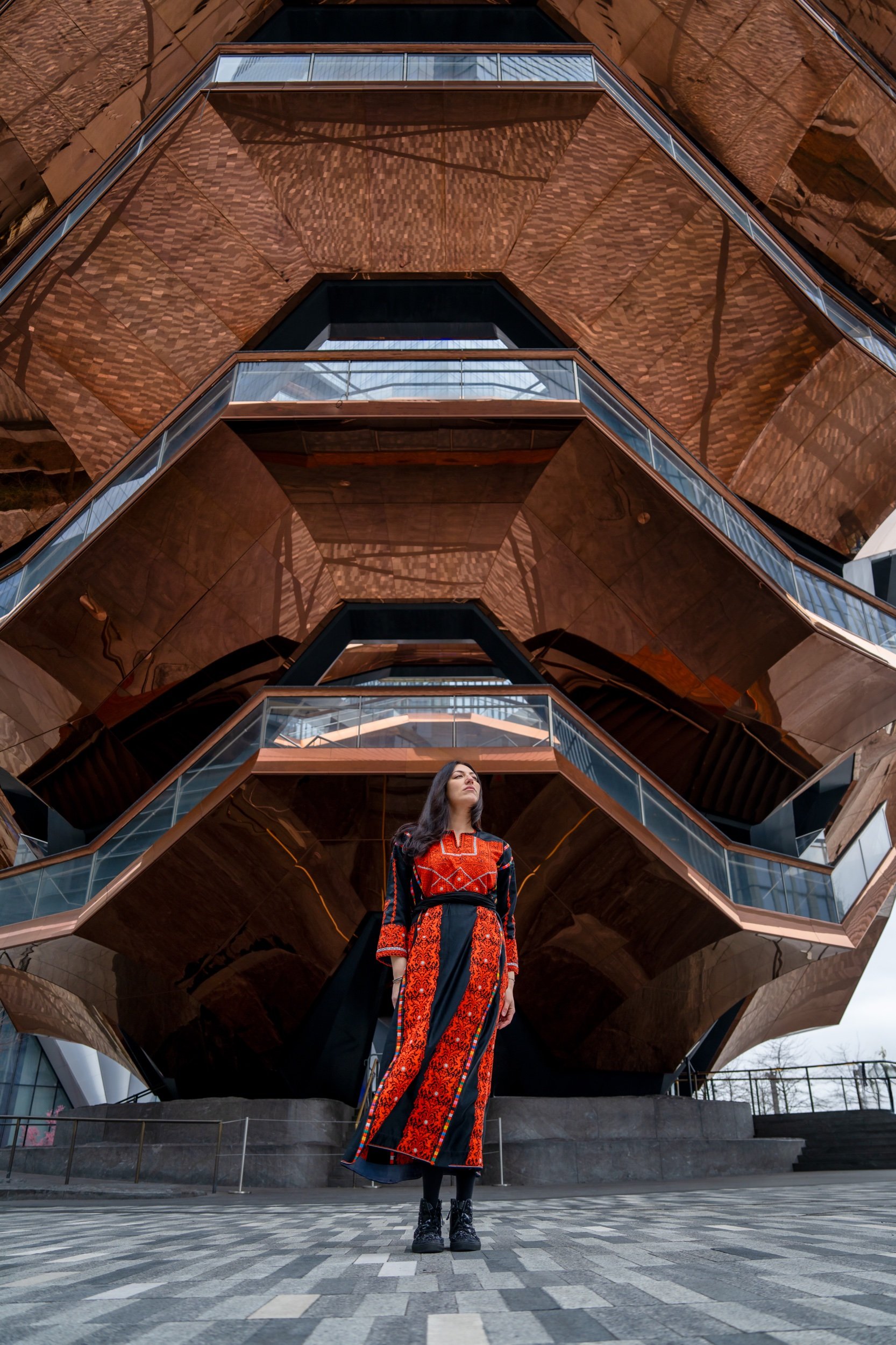About Wafa Ghnaim
Photographer: Ashraf Hussein, 2024
Wafa Ghnaim is an art and dress historian, fashion researcher, embroiderer, curator, archivist, educator, and author specializing in Palestinian, Syrian, Jordanian, and Lebanese dress history, embroidery, and adornment. She learned tatreez from her mother, award-winning NEA Heritage Fellow Feryal Abbasi-Ghnaim. She is the founder of the Tatreez Institute, through which she continues her mother’s educational legacy, teaching thousands of students worldwide and stewarding a growing collection of rematriated dress and adornment. As of 2025, the collection includes 189 catalogued objects, the majority from Palestine (75%), with additional pieces from Syria (14%), and neighboring regions historically connected by trade, shared making practices, and material histories. The holdings span dresses, headdresses, veils, accessories, and related fragments, growing through community donations that support a long-term strategy of ethical stewardship, preservation, education, and research.
Wafa Ghnaim also brings rigorous historical scholarship into her contemporary styling practice, advising fashion designers, stylists, and cinematic productions on the ethical and informed use of Palestinian dress. Her expertise includes the authentication of Palestinian and Syrian garments by time period, embroidery technique, color, and construction, as well as fluency in the symbolic visual systems embedded in Palestinian dress traditions. Ghnaim has dedicated her career to recovering and reestablishing this visual language, resisting cultural appropriation and reductive representations that frame Palestinians solely through an ancient or biblical past. As global film and media increasingly turn toward Palestinian storytelling, her work addresses the longstanding inaccuracies that have shaped cinematic depictions of Palestinian dress, asserting historical precision as essential to how cinema transmits cultural memory and knowledge to future generations. In this context, a film set in the 1940s must be grounded in the dress practices of that decade, including embroidery, headdress, face veils, and adornment, as historical specificity is foundational to the integrity of the visual record presented on screen.
Wafa is the author of Tatreez & Tea: Embroidery and Storytelling in the Palestinian Diaspora (2016; 2018), THOBNA (2023), Tatreez Companion (2024), and Tatreez Beauty: A Coloring Book (2024), with research published by the Metropolitan Museum of Art, the Art Institute of Chicago, the National Gallery of Singapore, the Institute for Palestine Studies, and more. She was the first Palestinian and Syrian embroidery instructor for the Smithsonian (2017–2021) and served as a Research Fellow at the Metropolitan Museum of Art in the Antonio Ratti Textile Center and Reference Library, as well as a Research Scholar in the Department of Ancient West Asian Art (2023–2024).
She now continues her preservation work as a Mellon Foundation Research Fellow at the Museum of the Palestinian People and as a commissioned designer for the Victoria & Albert Museum’s Thread Memory: Embroidery from Palestine. Vogue has named her and her mother “the world’s leading guardians of tatreez.” Today, Wafa’s work advances an interdisciplinary approach that unites material analysis, oral history, scientific study, anthropology, art history, and textile conservation, shaping a research practice sustained through ongoing fellowships, teaching, and writing.

